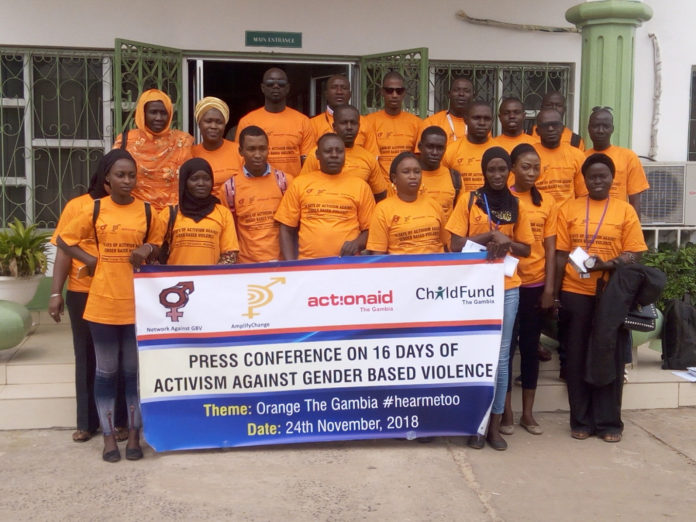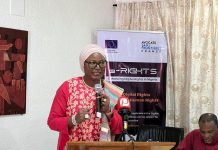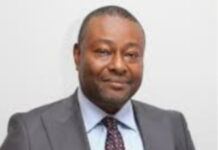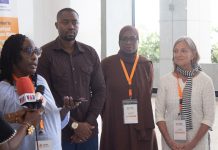By Ndey Sowe
The Network Against Gender Based Violence, (NGBV), held a press conference on the forth coming 16 days of activism against Gender Based Violence (GBV), at the Childfund conference hall, on Saturday, November 24th 2018.
The over two weeks of activism against GBV, is a global campaign to galvanize action to end violence against women and girls around the world. The theme for this year’s activism is: “Orange the World: #HereMeToo”.
According to officials, this year marks 27 years since the start of the 16 days of activism in 1991, coordinated by the center for Women’s Global Leadership. In partnership with Action Aid international the Gambia, the network secured two years of project funding from ‘Amplify Change’, to strengthen the capacity of the CSOs to advocate for the abandonment of FGM and other forms of gender-based violence in the country.
In his welcome remarks, Fallu Sowe, the project coordinator at NGBV, said the forum is significant, because it talks about issues affecting women and girls in the country; that GBV is every Gambian’s business which he said, is an issue that affects and should be a concern to everyone.
Sowe said the network and partners came up with the theme to say “no to violence against women and girls”; that the activities are meant to amplify the voices of women groups and survivors of gender-based violence in the country, especially survivors of sexual violence. “It is important to ensure that we advocate to government and other partners, to ensure that the issue of gender-based violence is adequately addressed in the Gambia,” he said.
Haddy Mboge Barrow, national coordinator at NGBV in her deliberations, said the aim of the campaign is to harmonize efforts to end violence and discrimination against women and girls in the country.
‘‘The theme reflects the core principle of the transformation in the 2030 agenda for sustainable development and reinforces the UN’s campaign commitment to a world free from violence for women and girls,’’ she said.
Haddy continued that GBV otherwise called violence against women and girls, disproportionately affects women and girls, and is a grave human rights violation; that this comes in many forms such as physical, sexual, psychological and emotional violence, which all have serious consequences on victims.
Haddy disclosed that despite the numerous Acts and Laws put together to end discrimination and other forms of violence against women and girls, and all the advocacy and awareness done by civil society organizations and institutions, GBV and discrimination against women and girls, continues to be a threat in our societies; that in the Gambia, the DHS 2013 disclosed that 41% of women age 15-49, have experienced physical violence at least once, since age 15; that 5% of women age 15-49 reported having experience sexual violence at least once in their lifetime, and that overall, about one in four married women (26%), reported having experienced emotional, physical or sexual violence from their spouse. That the report further disclosed that among married women who have experienced violence by a spouse (physical or sexual) in the past 12 months prior to the study, 24% reported experiencing physical injuries.
She called on Government to commit funds for the End To Domestic Violence support fund, established by Section 9 of the domestic violence act 2013, and support those victims of human trafficking, established by Section 58 of the trafficking in persons act 2007.



















